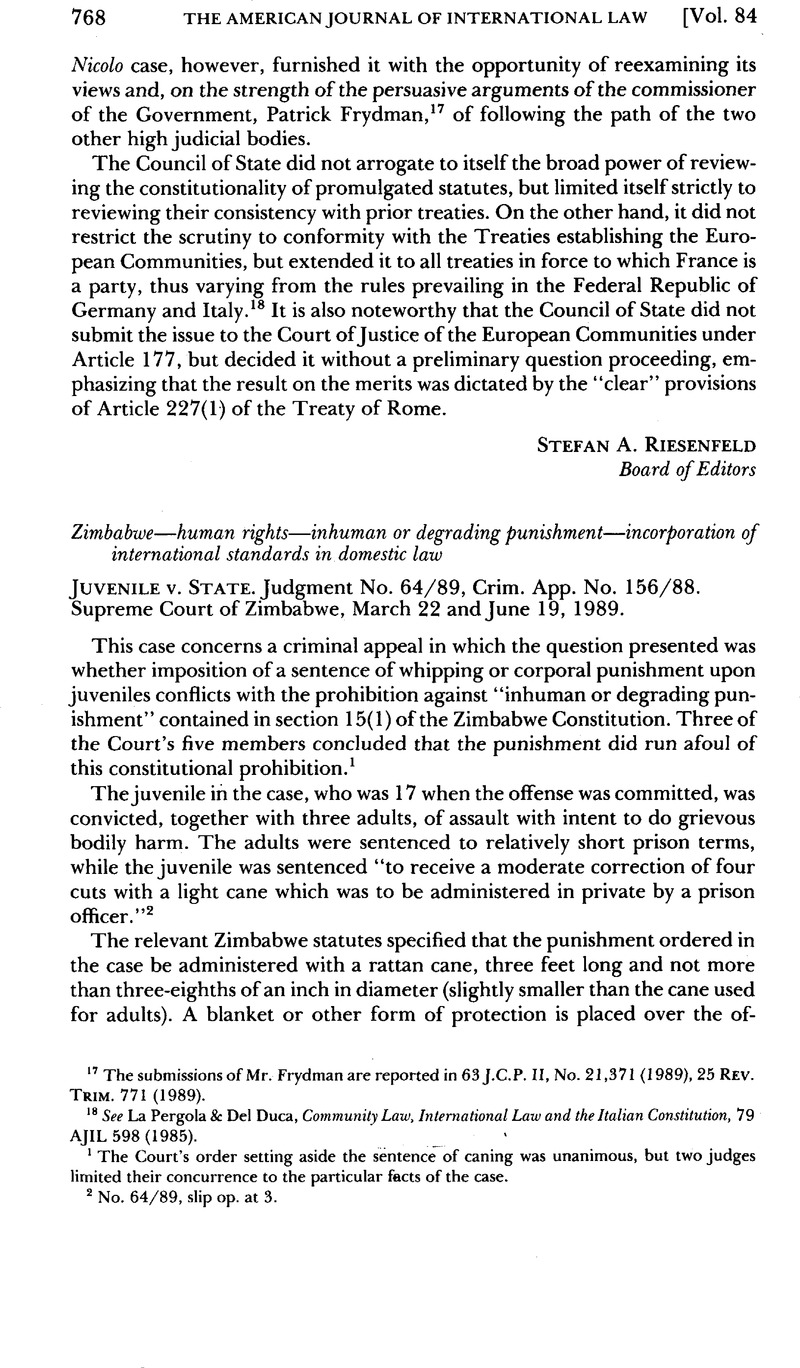No CrossRef data available.
Article contents
Juvenile v. State
Published online by Cambridge University Press: 27 February 2017
Abstract

- Type
- International Decisions
- Information
- Copyright
- Copyright © American Society of International Law 1990
References
1 The Court’s order setting aside the sentence of caning was unanimous, but two judges limited their concurrence to the particular facts of the case.
2 No. 64/89, slip op. at 3.
3 Id. at 7–8.
4 State v. Ncube, [1988] 2 S. Afr. L. Rep. 702 (Z. Sup. Ct.).
5 Whipping was described as
somewhat reminiscent of flogging at the whipping post, a barbaric occurrence particularly prevalent a century or so past. It is a punishment, not only inherently brutal and cruel, … but one which strips the recipient of all dignity and self-respect. It is relentless in its severity and is contrary to the traditional humanity practised by almost the whole of the civilised world, being incompatible with the evolving standards of decency.
It also was noted that the procedure was “easily subject to abuse.” Id. at 722, quoted in slip op. at 2.
6 Slip op. at 9.
7 26 Eur. Ct. H.R. (ser. A) (1978), 2 Eur. Hum. Rts. Rep. 1 (1979–80) (holding that birching as a punishment in the Isle of Man violated the European Convention on Human Rights prohibition against degrading treatment or punishment).
8 48 Eur. Ct. H.R. (ser. A) (1982), 4 Eur. Hum. Rts. Rep. 293 (1982) (corporal punishment in schools in Scotland did not constitute inhuman or degrading punishment).
9 Eur. Comm’n Hum. Rts., Report of July 18, 1986 (unreported) (single cane stroke on hand as means of corporal punishment in school found to be “degrading” and in violation of European Convention on Human Rights).
10 356 U.S. 86 (1958) (citing the Court’s reference to “evolving standards of decency”).
11 GA Res. 40/33, 40 UN GAOR Supp. (No. 53) at 204, UN Doc. A/40/53 (1985).
12 See, e.g., Christenson, Using Human Rights Law to Inform Due Process and Equal Protection Analyses, 52 U. Cin. L. Rev. 3 (1983); Lillich, The Constitution and International Human Rights, 83 AJIL851 (1989).
13 The Enforcement of Human Rights Committee of the International Law Association has recently undertaken a global survey, to be completed in 1992, of the use of the Universal Declaration of Human Rights in domestic law.


